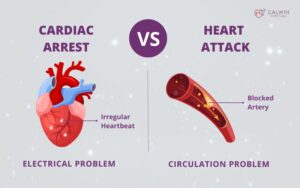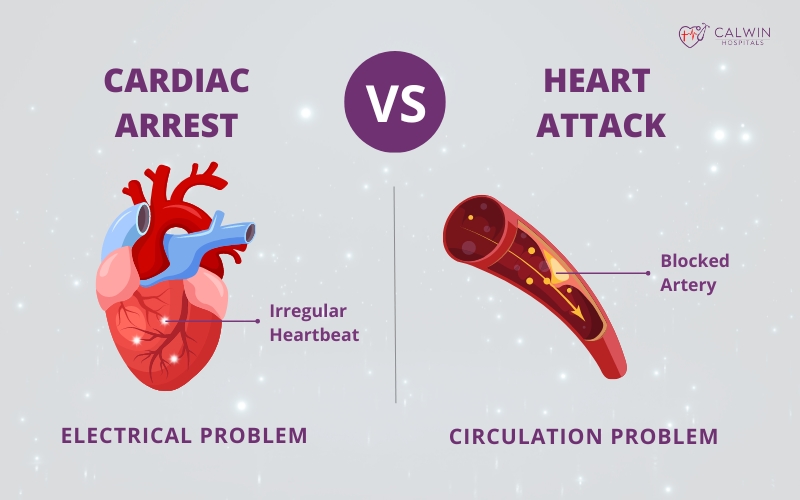Actress Shefali Jariwala died due to sudden cardiac arrest at 42. Learn how cardiac arrest differs from a heart attack, warning signs, and when to act.
🕯️ Why This Topic Matters Now
On June 27, 2025, actress and reality TV star Shefali Jariwala tragically passed away due to a sudden cardiac arrest. She was only 42, reportedly healthy, and had no major visible symptoms — yet her heart suddenly stopped beating. Her shocking demise has left India asking: what exactly is cardiac arrest, and how is it different from a heart attack?
Let’s break it down.
❤️ What Is a Heart Attack?
A heart attack happens when a blockage in a coronary artery cuts off blood supply to a part of the heart muscle. It’s a circulation problem, not an electrical one.
Key symptoms include:
-
Chest pain or pressure
-
Shortness of breath
-
Sweating, nausea, or dizziness
-
Radiating pain in arm, jaw, or back
Women may experience subtler signs, like fatigue or indigestion. According to the American Heart Association, the heart keeps beating during a heart attack — but the lack of blood flow can cause permanent damage if not treated quickly.
⚡ What Is Cardiac Arrest?
Cardiac arrest is a sudden electrical malfunction of the heart. It causes the heart to stop beating entirely, cutting off blood flow to the brain and body.
Unlike a heart attack, symptoms are instant and dramatic:
-
Collapse
-
No pulse
-
No breathing
-
Sudden loss of consciousness
As explained by Times of India, cardiac arrest requires immediate CPR and defibrillation. Without it, death can occur within minutes.
🔄 Are They Connected?
Yes, but they are not the same:
-
A heart attack can sometimes trigger a cardiac arrest.
-
But many cardiac arrests happen without any blockage — often due to electrical heart conditions, electrolyte imbalances, or undiagnosed issues.
Doctors told Hindustan Times that Shefali Jariwala’s sudden cardiac arrest may not have been caused by a heart attack, and she reportedly had no prior blockages or symptoms.
🚨 Early Warning Signs to Watch For
Heart Attack Signs:
-
Chest discomfort
-
Pain in left arm, jaw, back
-
Nausea, cold sweat, fatigue
Cardiac Arrest Signs:
-
Sudden collapse
-
No breathing or pulse
-
May show seizure-like movements briefly
If you notice these signs in someone, call emergency services immediately and begin hands-only CPR.
🧠 Why Shefali Jariwala’s Case Is a Wake-Up Call
Shefali’s death at 42 highlights a disturbing trend. Experts quoted in the Economic Times warn that over 50% of heart-related deaths in India now occur under age 50.
Stress, lifestyle, genetics, and undetected conditions are silently raising risk — especially in young women who may ignore early symptoms or delay screenings.
🗞️ Final Word
The heartbreaking loss of Shefali Jariwala reminds us all that heart health isn’t just an old person’s issue. By understanding the difference between a heart attack and cardiac arrest, we can act faster — and save lives.

